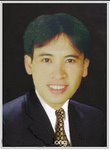Liberia war crimes trial to begin
The former president of Liberia, Charles Taylor, is due to go on trial for war crimes in The Hague.
He has been accused of supporting rebels in Sierra Leone, who conducted an 11-year campaign in which thousands of civilians were killed or maimed.
The trial is being conducted by the UN-backed Special Court for Sierra Leone and has been moved away from West Africa for security reasons.
It is the first time a former African head of state has faced such a trial.
The trial is expected to last for a year to 18 months, and the UK has offered to imprison Mr Taylor if he is convicted.
'Not guilty'
The former Liberian leader has been indicted on 11 charges of war crimes, crimes against humanity, and violations of international humanitarian law over his alleged role in the brutal civil war in Sierra Leone.
Mr Taylor pleaded not guilty to all the charges at his first appearance at the court in Freetown in March 2006.
He initially refused to plead, arguing that the court had no right to try him and that it had no jurisdiction over Liberia or its former president.
The Special Court for Sierra Leone has been approved by both the UN and the government of Sierra Leone.
It its sitting in the facilities of the International Criminal Court (ICC) in The Hague because of the risks that the trial might lead to tensions within Sierra Leone itself.
The UN and the government of Sierra Leone have appointed the judges.
Unlike the war crimes tribunals for the former Yugoslavia and Rwanda, the UN is not funding the special court. Instead, it is relying on foreign governments for support.
The Dutch government agreed to host Mr Taylor's trial, as long as he was imprisoned in another country if convicted.
Blood diamonds
The BBC's David Bamford says the trial hinges on determining the degree to which Mr Taylor helped start, prolong and deepen the brutal civil war in Sierra Leone. Mr Taylor started Liberia's civil war in 1989 and became one of a number of warlords competing for control in the West African country.
He later emerged as Liberia's most powerful politician and won the 1997 presidential election that ended the war there.
Meanwhile in 1991, one of Mr Taylor's comrades-in-arms, Foday Sankoh, also started his own rebellion in neighbouring Sierra Leone.
The prosecution claims Mr Taylor provided the Revolutionary United Front leader with training, money, arms and ammunition to start the rebellion, and even lent him fighters to take part in the initial attack.
The RUF became notorious for hacking off the hands and legs of civilians during their decade-long war.
It is alleged that Mr Taylor shared a common plan with the RUF's commanders to gain power and control over Sierra Leone, so he could gain access to its diamonds and have a government in Freetown which would support his aims.
However, the rebellion in Sierra Leone collapsed. Its war crimes court indicted the rebel leaders and Mr Taylor as well.
In 2003, Mr Taylor himself lost power in Liberia after rival militias rose up and forced him into exile in Nigeria.
He was deported by Nigeria last year in controversial circumstances and flown to The Hague to await his trial.

Nuk ka komente:
Posto një koment